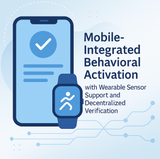Leveraging Blockchain for Healthcare Financial Transactions
-
Immutable Records: Every transaction recorded on a blockchain is immutable, meaning once a financial transaction is logged, it cannot be altered. This feature is crucial in healthcare where billing discrepancies can lead to significant issues.
-
Audit Trails: Blockchain provides an unparalleled audit trail for financial transactions, making it easier to track funds from payer to provider, ensuring all parties are accountable.
-
Data Privacy: With healthcare data being highly sensitive, blockchain offers enhanced security through encryption and decentralization, reducing the risk of data breaches.
-
Patient Control: Patients can control access to their financial data, deciding who can view or use their information for billing purposes.
-
Direct Payments: Blockchain can facilitate direct payments from insurers or patients to providers, cutting out middlemen, thus reducing transaction costs and speeding up payment cycles.
-
Smart Contracts: These self-executing contracts with the terms directly written into code can automate billing and payments once conditions are met, like treatment completion or service delivery.
-
Verification: The decentralized nature of blockchain requires consensus for any transaction to be validated, significantly reducing the possibility of fraudulent activities.
-
Claims Management: Automated verification of claims through smart contracts can prevent overbilling or billing for services not rendered.
-
Global Reach: For multinational healthcare providers or patients receiving treatment abroad, blockchain enables secure, swift cross-border payments without the need for currency conversions or banking intermediaries.
-
Adoption: Widespread adoption requires buy-in from all stakeholders in the healthcare ecosystem, including insurers, providers, and regulatory bodies.
-
Regulatory Compliance: Blockchain must navigate complex healthcare regulations, ensuring compliance with laws like HIPAA in the U.S.
-
Infrastructure: Not all healthcare providers have the tech infrastructure or knowledge to implement blockchain, necessitating significant investment in education and technology.
-
Integration with EHRs: Combining Electronic Health Records (EHRs) with blockchain for a seamless, secure patient data and payment management system.
-
Interoperability: Standardizing blockchain protocols to ensure different healthcare systems can communicate for financial transactions.
-
Patient Empowerment: Patients could manage their health and financial data in one secure ledger, giving them control over their healthcare journey.
Truway Health News & Insights
Consistency Over Intensity: How to Make Wellness Stick
Consistency Over Intensity: How to Make Wellness Stick Wellness and self-care goals often start with...
Mobile‑Integrated Behavioral Activation With Wearable Sensor Support and Decentralized Verification: Protocol for a Randomized Behavioral Trial
Abstract Background: Behavioral activation delivered through mobile platforms has shown promise for...
When Your Body Won’t Settle Down Everyday Habits That Calm Inflammation
When Your Body Won’t Settle Down: Everyday Habits That Calm Inflammation Inflammation is a normal bi...
Truway Health Launches Innovative In-Vitro Cryo-Therapeutic Clinical Study
Advancing Cellular Preservation, Precision Therapy, and Translational Science Truway Health, Inc. is...
Everyday Stress, Handled: Practical Ways to Feel More Steady Day to Day
Everyday Stress, Handled: Practical Ways to Feel More Steady Day to Day Everyday stress is the mind-...
Creating Your Personalized Health Roadmap: Break Bad Habits and Build Long-Term Well-Being
Creating Your Personalized Health Roadmap: Break Bad Habits and Build Long-Term Well-Being Improving...







